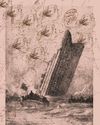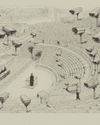試す 金 - 無料
Bhutto's Nehru Story
Outlook
|December 01, 2024
Nehru's principle of "compromise and argument" remains the only workable formula for South Asian leaders

SIXTY years ago, Zulfikar Ali Bhutto, one of South Asia’s most brilliantly devilish minds, penned an assessment of Jawaharlal Nehru. Titled ‘India after Nehru’, Bhutto had the document confidentially printed at the State Bank of Pakistan Press, Karachi. Only 500 copies were made. Since Bhutto was a minister at the time in Field Marshal Ayub Khan’s government and what he had to say about India’s first prime minister was not quite palatable to the Pakistani establishment, he found himself constrained to withdraw as many copies as could be retrieved. However, the very efficient Indian diplomats in Karachi had managed to secure a copy, and a copy of that copy somehow found its way into the Haksar Papers.
This 60-year-old assessment, made by India’s most trenchant critic, makes rewarding reading, particularly in the current season of demonising Nehru. Bhutto’s is a masterly overview of India’s struggles as an independent nation-state and Nehru’s role and contribution in imposing a governing order in a land, which for centuries had succumbed to the outsiders’ armies and firmans (orders). Bhutto’s unsentimentally prescient judgement reads:
“...The myth and image of Nehru were greater than the man. Although he committed aggression, alienated his neighbours, suppressed his opponents, made mock convenience of his ethics, he was Nehru the redeemer of 400 million people, a valiant fighter who led his people to freedom and, for the first time in 600 years, gave them a place in the sun.”
このストーリーは、Outlook の December 01, 2024 版からのものです。
Magzter GOLD を購読すると、厳選された何千ものプレミアム記事や、9,500 以上の雑誌や新聞にアクセスできます。
すでに購読者ですか? サインイン
Outlook からのその他のストーリー

Outlook
Netanyahu's Imposed War
A new era of hegemony has begun in the Middle East as Israel has attacked Iran to assert the Zionist state as the pre-eminent military and political power in the region
8 mins
July 01, 2025

Outlook
A Recitation of Becoming
This debut novel plunges into the fissures of contemporary womanhood stretched across the blazing Arabian Peninsula
3 mins
July 01, 2025

Outlook
The 32-Second Flight
Dreamliner's nightmare continues for the ones left behind
16 mins
July 01, 2025

Outlook
Mid-air Fallout
The Air India tragedy exposes cracks in India's aviation boom
6 mins
July 01, 2025

Outlook
Justice as Performance
In an era when court proceedings are being livestreamed, it looks like justice is being done to be seen. Not seen to be done, as it should be. This has grave implications for the quality of justice itself
7 mins
July 01, 2025

Outlook
And then, the Lion was Torn Apart
Israel's reckless Operation Rising Lion might attain ends that are the reverse of its intentions: Iran might hastily build a nuclear weapon
7 mins
July 01, 2025

Outlook
After Shock
While the world is in shock over the June 12 Air India plane crash in Ahmedabad that killed around 270 people, the aviation community says it was just a matter of time before a disaster like this struck the company’s fleet
8 mins
July 01, 2025

Outlook
In My Tongue
The CBSE's move to implement the 'mother tongue first' policy aims to enhance early learning and equity, but there are practical hurdles in implementing it in linguistically diverse Indian classrooms
5 mins
July 01, 2025

Outlook
Now, Post-mortem the Accident
The crash of Air India Flight 171 underlines the importance of investigation, implementing its recommendations and holding the Air India management responsible
6 mins
July 01, 2025
Outlook
A Fresh Chapter in My Forties
The wooden stairs and dim light at Darbhanga House, Patna look familiar.
3 mins
July 01, 2025
